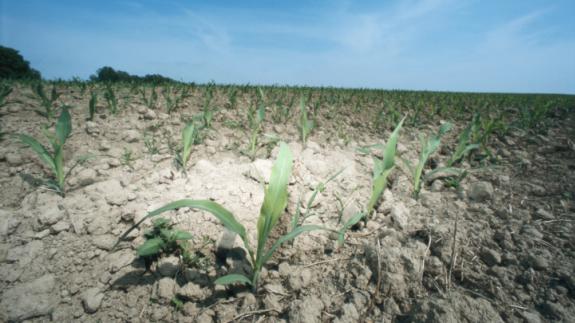
The Intergovernmental Panel on Climate Change issued a report on Climate Change and Land on Aug. 8, 2019. This report discusses climate change desertification, sustainable land management and food security. The summary for policy makers, totaling 43 pages, provides insight how IPCC experts see the future for agriculture. There are numerous authors from Brazil, France, United Kingdom, India, Italy, China and the United States. This report is worth reading.
The Wall Street Journal criticizes the alarmist report in an op-ed piece. The WSJ column claims the IPCC “…suggests global warming has devastated crop production and threatens food shortages.” Another U.N. Food and Agricultural Organization “…reports that new records were set for global corn, wheat and rice production five years running through 2017, the most recent year for which data are available.” The IPCC report indicates that since 1961 the per capita supply of vegetable oils and meat has doubled. A troubling statistic in the report claims 25%-30% of total food that is produced is lost or wasted.
Because the supply of food calories has increased, the report claims approximately 2 billion are overweight or obese. Even though the report reflects deep concern about land use, it does state since 1961 “…the total production of food (cereal crops) has increased by 240%...” The report claims surface air temperature has risen twice as fast as the global average temperature. The report believes climate change increases the frequency and intensity of extremes and has adversely impacted food production and contributed to more land becoming desert and subsequent land degradation. The report expresses concern over what it calls “vegetation browning.” The report notes globally the greening of vegetation has occurred over a larger area than vegetation browning areas.
Agriculture, forestry and land use are blamed for contributing to global warming. Section A3 claims that agricultural related activities create approximately 13% of CO2, 44% of methane, and 82% of nitrous oxide.
The report makes recommendations on how to handle land degradation and food security. In typical bureaucratic language the IPCC report states, “These include actions to build individual and institutional capacity, accelerate knowledge transfer, enhance technology transfer and deployment, enable financial mechanisms, implement early warning systems, undertake risk management and address gaps in implementation and upscaling.” As the reader can discern, this description is very clear. (Not!)
The WSJ op-ed alleged “The IPCC report parses words and engages in semantic tricks to give readers a false impression of declining global crop production.” The IPCC report does suggest food production is declining in the dry lands of Africa, Asia and parts of South America. The IPCC policy summary, which I suggest you read, leads the WSJ op-ed to make an interesting conclusion. The column closes with the following: “Environmental activist groups, bureaucrats, socialists looking to transform Western society, and biased journalists continue to make climate claims that have no basis in fact.” Notwithstanding this claim by the Wall Street Journal, the IPCC believes that if its recommendations are not implemented, there will be irreversible impacts on our ecosystems. Moreover, it believes if we do not increase soil organic carbon and reduce land degradation, there will be additional greenhouse gas emissions and agriculture and its practices will accelerate global warming.
Again, the IPCC special report on agriculture and land degradation is worth reading.
The opinions of the author are not necessarily those of Farm Futures or Farm Progress.
Read more about:
ClimateAbout the Author(s)
You May Also Like




